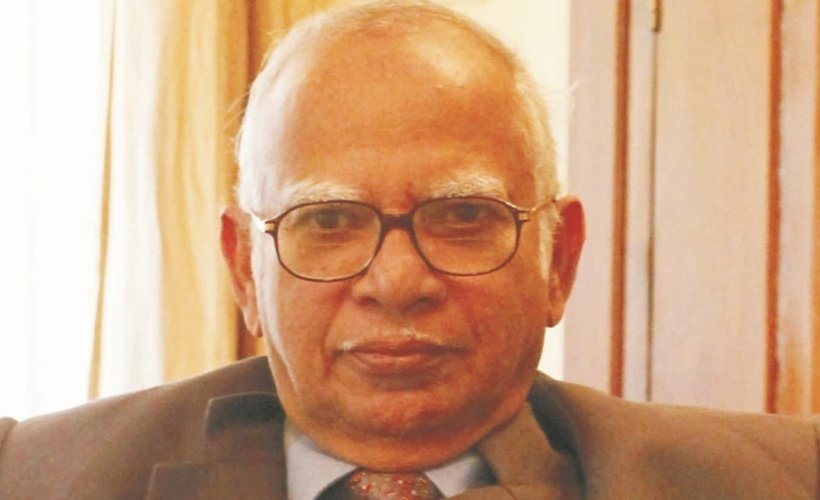
V B PRABHU VERLEKAR explains the new and old tax regimes and the benefits of both to the taxpayer
The Government of India intends to have hassle free filing of tax returns for tax-payers by removing various deductions available to reduce taxable income such as payments of insurance premia, contributions to Provident Fund, National Pension Scheme, medi-claim policies, investment in tax saving securities, charitable donations, exemptions for bank interest etc with the goal of providing ready-made prefilled tax returns with option for modifications.

With this end in view, a new section 115 BAC was inserted in the Income tax Act, 1961 with effect from financial year 2020-21 giving an option to the tax payer to select the new scheme (regime) of lower tax rates by foregoing all the deductions which s/he could claim under old scheme (regime) as stated above or stick to the old scheme of tax rates with deductions claims. However, response from tax payers for the new tax regime was poor.
With effect from 1st April, 2023, the Government has pushed forward this Scheme more aggressively in modified form by making it more attractive to the tax-payers.
A standard deduction of Rs. 50,000 is now available to salary (includes pension) earners. The basic exemption limit is now raised to Rs. 3 lakhs from earlier Rs. 2.5 lakhs, irrespective of the seniority age of the taxpayers, which means tax returns is required to be filed if income is Rs. 3 lakhs or less. Thereafter, filing tax return is compulsory. However, for income up to Rs. 7 lakhs, there is no tax liability, due to enhanced rebate up to Rs. 25,000 from earlier Rs. 12,500/-u/s 87A.
Taxpayers who wish to opt for payment of tax under the old regime; the basic exemption limit continues to be 2.50 lakhs, 3 lakhs, and 5 lakhs if the age is less than 60 years, between 60 and 80, and above 80 years, respectively. The deductions and exemptions that were permitted under old tax system remain unchanged. If taxable income does not exceed Rs. 5 lakh, tax liability is nil, with rebate under section 87A.
From FY 2023-24 the new tax regime is the default option, i.e., automatic. The taxpayer who wishes to opt for old regime will be required to select the same before filing tax returns. Employers will required to calculate income and deduct tax at source based on new tax regime, unless employee gives specified declaration for old scheme at the beginning of the year. However, while filing income tax return s/he may choose any tax regime regardless of the tax regime selected by the employer. Every financial year, an individual has an option to select between old and new tax regime if the total income does not include any business or professional income.
For individuals with business income, once they opt for new tax regime, they will only have once in a life time opportunity to return to the old tax structure. In other words, they will not be able to choose new tax regime in future once they have chosen the old one.
The various deductions and exemptions that are normally claimed by a taxpayer under old regime are Rs. 1.50 lakh under 80C, Rs. 25,000 / Rs. 50,000 (seniors) for medi-claim under 80D, Rs. 50,000 NPS u/s80 CCD, savings bank and fixed deposit interest Rs. 50,000 (seniors) or Rs. 10000 (others) under 80TTA and 80TTB, Rs. 2 lakh housing loan interest for self-occupied property u/s 24, Rs. 5,000 for health check-up u/s 80D. The incentives allowed to taxpayers under old regime actually induces a taxpayer to compulsorily save for old age in absence of any social security from the government. It also helps to claim medical benefit of hospitalisation, which are prohibitive. This factor should be weighed in the mind of a taxpayer in opting for new tax regime. Even otherwise s/he should build robust retirement fund to lead a comfortable life through prudent efficient investments with compounding effect and have medi-claim insurance for family with adequate cover.
Before opting, it is advisable to make actual calculations under both options at the beginning of the year and plan for investments and tax savings schemes accordingly.
Goan spouses governed under communion of properties under the Portuguese Civil Code earning income other than salaries will be eligible to divide income in equal share and stands to benefit under new regime for income upto Rs. 14 lakhs.
This scheme is applicable to individuals, HUF, Association of Person, Body of Individual, and Artificial Juridical Person.





